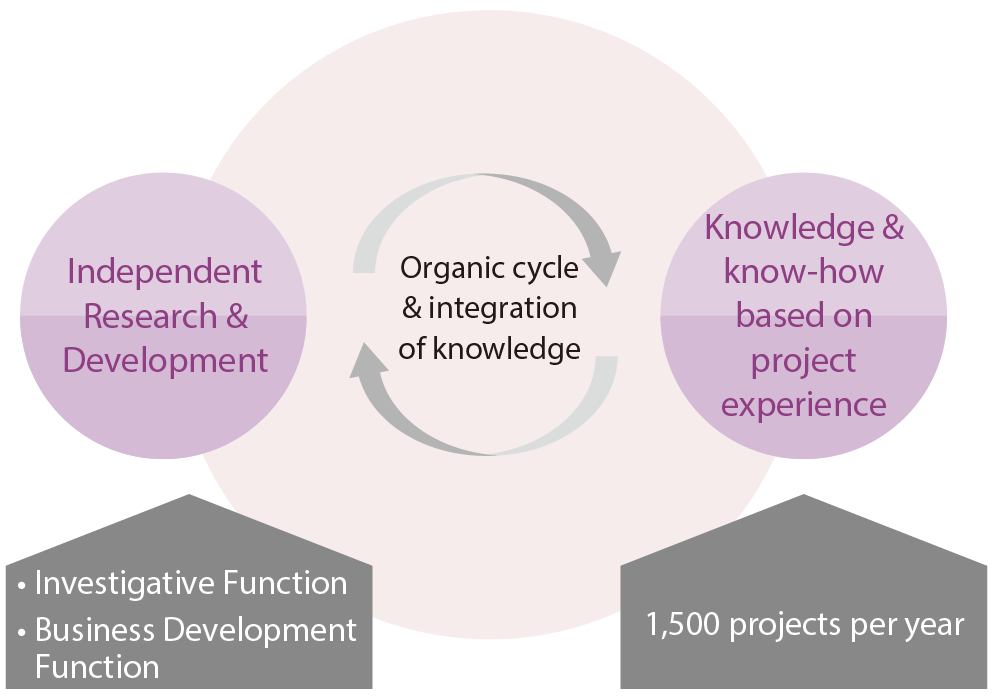We continually fortify our capacity for conceptualizing and making pertinent recommendations through our endeavors in independent research & development activities such as envisioning the future society and analysis of social, economic, and technological trends. Going forward, we will further enhance our investigative and business development functions in order to strengthen the A: Research & Recommendations aspect of our Value Creation Process.
- Investigative Function: Research of public policy & the economy; research of societal issues; comprehensive analysis & assessment of the societal impact of technology; envisioning the desirable future world and recommendations toward its realization
- Business Development Function: Research & development, conceptualization, and recommendations focused on primary fields of Value Creation Process in order to support creation of new business, societal implementation, and partner co-creation

